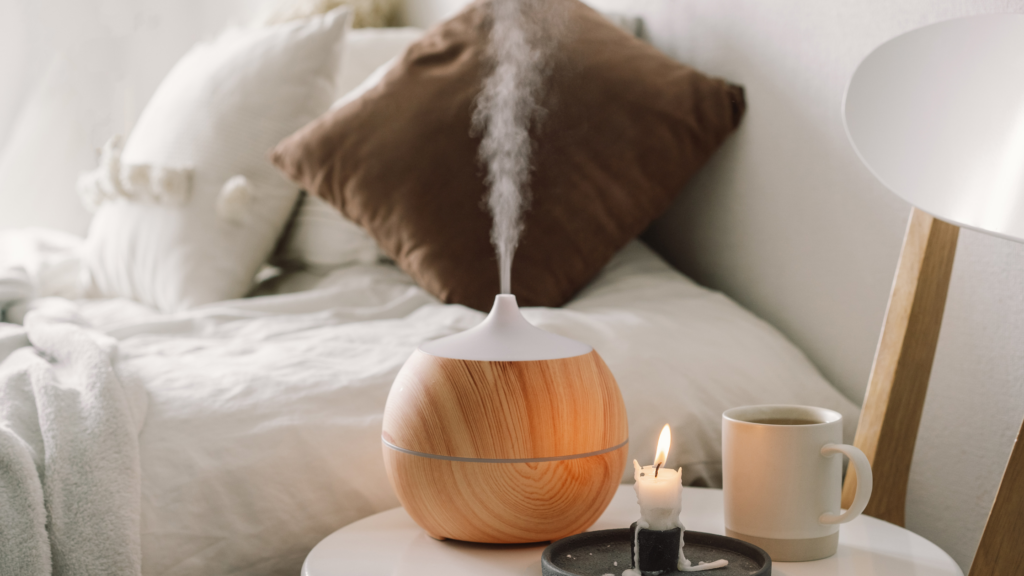Hi there! I’m thrilled to have you here as we dive into some of the most effective ways to enhance sleep, one of the most crucial aspects of wellness. I often say that good sleep is the foundation upon which our health, energy, and mood are built. Whether you’re juggling work, family, or simply trying to keep up with the demands of everyday life, finding ways to enhance sleep can make all the difference.
Today, I’ll be sharing some of my favorite hacks and habits that can help you get the restful, rejuvenating sleep your body and mind deserve.

Why Getting Enough Sleep is Key to Living Your Best Life
Before we jump into the many ways to enhance sleep, I want to take a moment to share why sleep quality is so essential to our overall well-being. Quality sleep isn’t just about feeling rested—it’s about giving our bodies and minds the time they need to restore, repair, and recharge. When we invest in getting good sleep, we see benefits across all aspects of our health: mental, physical, and emotional.
Mental Health Benefits
Getting quality sleep is one of the best things we can do for our minds. While we sleep, our brains are actively processing information, storing memories, and clearing out toxins. This “reset” helps improve focus, concentration, and decision-making, making it easier to tackle daily tasks with clarity. When we’re well-rested, we also feel more resilient and better able to handle life’s challenges. In contrast, a lack of sleep often leads to irritability, stress, and even increased risk of anxiety or depression.
Physical Health Benefits
Quality sleep is also vital for our physical health. While we rest, our bodies are hard at work repairing cells, muscles, and tissues. This process strengthens our immune system, helping us fend off illnesses and recover faster if we do get sick. Good sleep also plays a crucial role in regulating hormones, including those that control appetite, which is why sleep is often linked to maintaining a healthy weight. Studies have even shown that a lack of sleep increases the risk of serious health conditions, including heart disease, diabetes, and obesity.
Emotional Health Benefits
Finally, let’s talk about the emotional benefits of good sleep. When we’re well-rested, we’re more in tune with our emotions, making it easier to manage stress, remain calm, and connect positively with others. Lack of sleep, on the other hand, can leave us feeling more reactive, impatient, and overwhelmed by emotions. With quality sleep, we’re better able to experience joy, gratitude, and connection—all of which are key to a fulfilling life.
In short, sleep is foundational to every part of our well-being, impacting how we think, feel, and function each day. By making sleep a priority, we set ourselves up for a healthier, happier life. So, as you explore the 15 hacks in this blog, keep in mind that each one brings you closer to experiencing these powerful benefits of quality sleep.
Source: Journal of Clinical Sleep Medicine

1. Set a Consistent Sleep Schedule
One of the most effective ways to enhance sleep is by going to bed and waking up at the same time every day, even on weekends. A consistent sleep schedule helps regulate your body’s internal clock, making it easier to fall asleep and wake up naturally.
2. Create a Relaxing Bedtime Routine
Establishing a calming pre-sleep routine can signal your body that it’s time to wind down. Consider incorporating activities like reading a book, listening to soft music, or practicing deep breathing exercises. Avoid stimulating activities that can keep your mind racing, such as checking emails or watching action-packed shows.
3. Optimize Your Sleep Environment
Your bedroom environment can significantly impact sleep quality. Aim to keep your room cool, dark, and quiet. Consider blackout curtains, a fan or white noise machine, and a comfortable mattress and pillow to create the ideal sleep environment.
4. Limit Blue Light Exposure at Night
Electronic devices like phones, tablets, and TVs emit blue light that can disrupt your body’s production of melatonin, a hormone that promotes sleep. Limit screen time at least an hour before bed, or use “night mode” settings to reduce blue light exposure.
Source: Sleep Foundation
5. Try Aromatherapy
Aromatherapy is a natural way to enhance sleep by creating a relaxing environment with essential oils like lavender and chamomile, known for their calming properties. It works by influencing the limbic system, which controls emotions and arousal, through scent molecules absorbed via the nose. These oils help reduce cortisol (the stress hormone) levels and boost serotonin and melatonin, hormones essential for regulating sleep, promoting a sense of calm and relaxation that leads to a more restful night’s sleep.

6. Watch What You Eat and Drink Before Bed
Certain foods and drinks can interfere with sleep. Avoid caffeine and alcohol in the evening, as they can disrupt your sleep cycle. Instead, opt for sleep-promoting snacks, like a small handful of almonds or a banana, which contain nutrients that support relaxation and rest.
7. Get Exposure to Natural Light During the Day
Spending time in natural daylight helps regulate your circadian rhythm, which controls your sleep-wake cycle. Aim to spend at least 30 minutes outside each day, especially in the morning, to improve your body’s natural sleep patterns.
8. Exercise Regularly
Regular physical activity is a proven way to enhance sleep. Try to fit in at least 30 minutes of exercise most days, but avoid vigorous activity right before bed as it may energize you rather than relax you.
9. Limit Naps and Nap Smartly
Naps can be beneficial but also disruptive if taken too late in the day or for too long. If you need to nap, aim for a short 20-30 minute nap in the early afternoon to avoid interfering with nighttime sleep.
10. Try Mindfulness and Relaxation Techniques
Techniques like meditation, deep breathing, or progressive muscle relaxation can help you wind down and ease any stress or tension before bed. Mindfulness exercises can help quiet your mind, making it easier to drift off to sleep.
11. Adjust Your Diet for Better Sleep
A well-balanced diet can support better sleep, while certain foods may hinder it. Try to limit sugar intake and incorporate sleep-supportive nutrients, like magnesium (found in leafy greens, nuts, and whole grains), which promotes relaxation.
12. Keep a Comfortable Temperature
The ideal sleep temperature varies by person, but cooler temperatures generally promote deeper sleep. Experiment with your room temperature to find what’s most comfortable for you. Between 68-77°F (20-25°C) is typically recommended.
Source: Healthline
13. Journal Your Thoughts
If you find it hard to switch off your mind at night, keeping a journal can help. Spend a few minutes each evening writing down any worries, to-do lists, or thoughts. This helps clear your mind, making it easier to relax and fall asleep.
14. Try Sleep-Enhancing Supplements
Supplements like melatonin, magnesium, and valerian root are known to support relaxation and sleep quality. Always consult with a healthcare professional before starting any new supplements to ensure they’re right for you.
15. Seek Professional Help If Needed
If you’ve tried multiple ways to enhance sleep and still struggle with insomnia, excessive fatigue, or frequent awakenings, consider consulting a sleep specialist. Conditions like sleep apnea or chronic insomnia often require professional guidance for effective treatment.

Sweet Dreams and Lasting Well-Being!
By incorporating even a few of these 15 hacks, you’re likely to notice improvements in your sleep quality, mental clarity, and overall well-being. Finding ways to enhance sleep is essential for living a healthier, happier life. Try experimenting with these tips to discover what works best for you, and start enjoying the benefits of truly restful sleep.
As we wrap up, I hope these tips and techniques inspire you to make sleep and well-being a priority. Achieving quality sleep isn’t just a luxury—it’s truly essential to o0ur health, energy, and resilience. Even small adjustments can make a significant impact, so I encourage you to explore these strategies and find what resonates with you. And remember, I’m here to support you on your wellness journey whenever you need it. Wishing you peaceful nights, brighter days, and a happier, healthier you. Sweet dreams, and take care!
P.S. Don’t wait—improve your well-being! Explore my other wellness resources to improve your health.
FAQs on Ways To Enhance Sleep
To increase your sleep, start by establishing a consistent bedtime and wake-up schedule. Aim for 7-9 hours of sleep each night, depending on your individual needs. Create a calming bedtime routine that signals your body it’s time to wind down—this could include reading, taking a warm bath, or practicing deep breathing exercises. Avoid caffeine, alcohol, and heavy meals in the hours leading up to bedtime, and limit screen time to prevent blue light from disrupting your body’s melatonin production.
Falling asleep more effectively involves creating a sleep-friendly environment and practicing relaxation techniques. Make sure your bedroom is cool, dark, and quiet, and invest in a comfortable mattress and pillow. To help calm your mind, consider incorporating relaxation exercises such as deep breathing, meditation, or progressive muscle relaxation. If your mind is racing, writing down your thoughts or worries in a journal can help clear your head. Avoiding screens and limiting stimulating activities in the hour before bed can also make a big difference in how quickly you fall asleep.
Several supplements are known to promote deep sleep. Melatonin, a hormone naturally produced by your body, is widely used to help regulate sleep cycles. Magnesium is another great option, as it helps relax muscles and promote relaxation. Valerian root, chamomile, and lavender are herbal supplements known for their calming effects and can be taken in tea or supplement form. Always consult with a healthcare provider before starting any new supplements, especially if you are on medication or have existing health conditions.
The most effective natural sleep aid can vary by individual, but some top contenders include melatonin, magnesium, and valerian root. However, sleep hygiene—such as maintaining a consistent sleep schedule, creating a relaxing bedtime routine, and optimizing your sleep environment—plays a crucial role in enhancing sleep quality. If you’re looking for an easy and non-invasive way to promote sleep, try drinking a cup of chamomile tea or using essential oils like lavender, known for their calming effects. Ultimately, combining several sleep-enhancing habits often yields the best results.
+ show Comments
- Hide Comments
add a comment